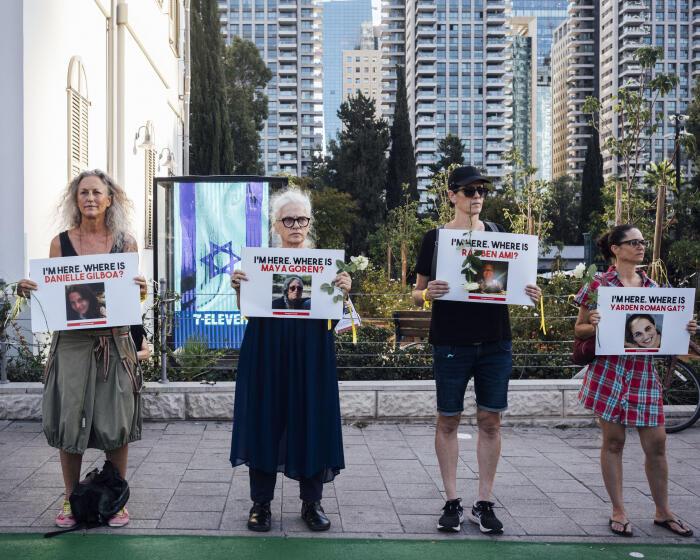The Israeli government is under increasing pressure from relatives of Hamas hostages to prioritize hostages’ release over a ground assault on Gaza.
In the center of Tel Aviv, directly across from the Israeli military headquarters, a large dinner table was arranged outdoors. In the sunlight that filled the plaza, it appeared as though arrangements were being made for a celebratory dinner. However, the true purpose of the feast was revealed by the sense of unease and suffering that seemed to have encompassed the whole nation since October 7.
For the 200 captives that Hamas was holding, more than 200 place settings were set up. There were wine bottles that appeared ready to be opened, and four colorful baby bottles for toddlers that had been taken by terrorists along with their parents were waiting to be filled with alcohol at the end of the table.
Families, relatives, and neighbors of the hostages stood in front of the empty chairs at this banquet. The purpose of the banquet was to remind the officers, who were hidden behind the tall walls of the military headquarters, that although the government is concerned with the possibility of a ground attack in the Gaza Strip, what matters most is the homecoming of the Israeli people’s loved ones.
Three days after the attack by Hamas, 42-year-old father Avichai Brodetz, whose wife and three small children had been kidnapped arrived in Kaplan Street with his brother and set up shop to put pressure on the Ministry of Defense and, more generally, on the government. He appeared as the public face of the captive families in the media, and hundreds more quickly followed.
Now, they set up camp in front of the military facilities, hoping to hide their differences and occasionally their political conflicts beneath the same banner that speaks Hebrew, English, Spanish, German, and French: “Bring them home.”


